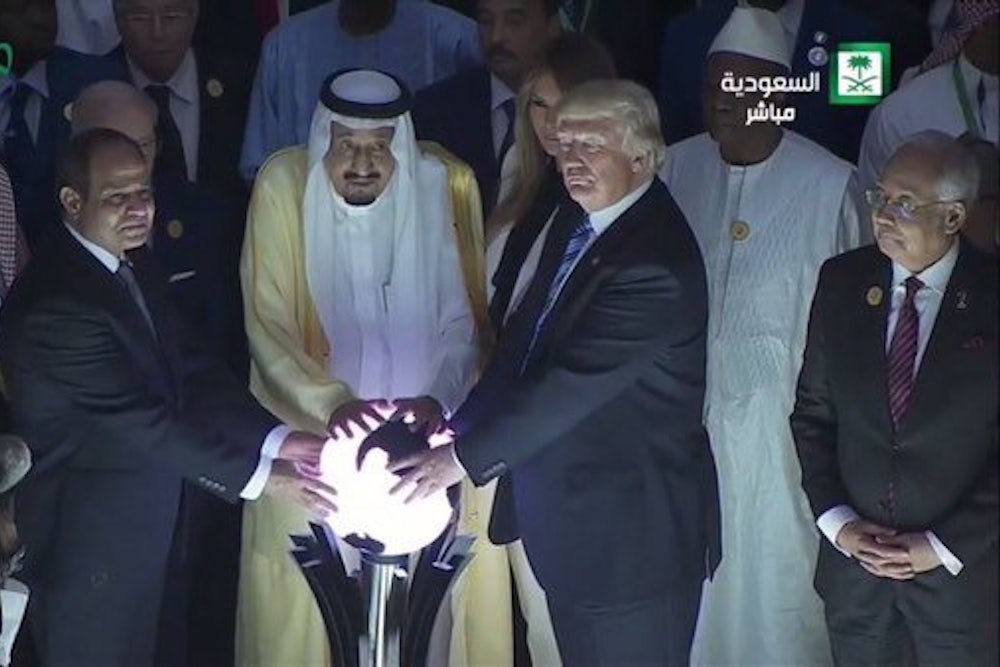Two weeks ago Donald Trump made Saudi Arabia the first stop of his first foreign trip as president. The pride of place given to the kingdom was no accident. Trump used the trip to closely align American foreign policy with Saudi Arabia, making it the spearpoint for the war on terror. Trump promised more than $100 billion in arms sales to the country and echoed its calls for a grand coalition against Iran, which was blamed as the source of global terrorism and instability in the Middle East.
Now, empowered by Trump, Saudi Arabia is picking a fight with Qatar. Saudi Arabia, joined by Egypt, Bahrain, Yemen, and the United Arab Emirates, is cutting off ties with Qatar, which stands accused of destabilizing the region at the behest of Iran. The root of these accusations are comments allegedly made by Qatar’s Emir Tamim that were supportive of Iran and Hamas. But Emir Tamim and his government deny that he ever made these remarks.
As the BBC reports:
The countries say Qatar is supporting terrorist groups including the Muslim Brotherhood.
The Saudi state news agency SPA said Riyadh had closed its borders, severing land, sea and air contact with Qatar.
It cited officials as saying it was to “protect its national security from the dangers of terrorism and extremism.”
Egypt has also closed its airspace and ports for all Qatari transportation, its foreign ministry said.
The United Arab Emirates has given Qatari diplomats 48 hours to leave the country. Abu Dhabi accuses Doha of “supporting, funding and embracing terrorism, extremism and sectarian organisations,” state news agency WAM said.
While many parties are involved, at its core this is a struggle between Saudi Arabia and Qatar. The United States is in a difficult position because both countries are valued allies. There are 10,000 American troops stationed in Qatar, which is the headquarters of Centcom, the U.S. military’s command center in the Middle East. While American diplomats are calling for calm, there’s every reason to think that Trump’s embrace of Saudi Arabia empowered the oil-rich kingdom to launch this regional power play.
